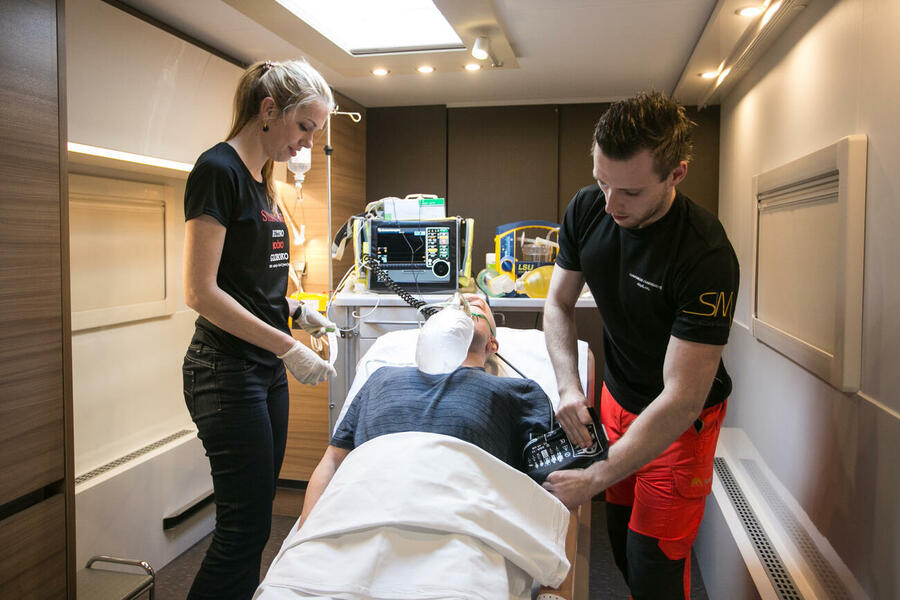SIM Centre receives prestigious international accreditation
The Simulation Education Centre (SIM Centre) of the Ljubljana Community Health Centre has received the prestigious international SESAM accreditation, which confirms the highest standards of quality in simulation education in healthcare.
What makes this accreditation especially valuable is that it was awarded at the primary care level, where most interactions between people and the healthcare system occur. The SIM Centre is one of the few in Europe operating at the primary healthcare level, making the accreditation especially important for both the public and the healthcare system. With this, Slovenia sets a new standard and demonstrates that even smaller countries can develop leading centres that serve as a model for the broader European community. This opens the door to international collaboration, knowledge exchange and the long-term advancement of the entire healthcare system.
The accreditation of the SIM Centre confirms that it meets the highest international quality standards in the education and training of healthcare professionals, bringing numerous benefits to patients.
Higher quality and safer care
Staff who regularly train at the SIM Centre gain the latest knowledge based on scientifically proven best practices. This leads to safer, more accurate, and more professional patient care, while reducing the likelihood of errors in the healthcare system.
Practically trained staff
Simulations in realistic environments enable employees to practice responding to a variety of situations, making them better prepared for emergencies, complex clinical cases and everyday challenges in outpatient clinics.
Improved emergency response
Employees participate in triage simulations that help them accurately and promptly classify patients based on the urgency of their condition. This ensures that those requiring emergency medical treatment receive swift and targeted care.
Using the latest equipment and technology
Medical staff are trained to use the latest equipment, allowing them to apply modern technology more effectively in daily practice. This gives patients access to up-to-date diagnostic and treatment methods.
Continuous improvement of services and introduction of innovations
The SIM Centre has a research and development department that enables the rapid implementation of new guidelines and procedures. This keeps employees constantly up to date, which directly improves the quality of care patients receive.
Reducing risks and errors
Regular simulations help employees improve teamwork, communication and clinical decision-making skills. This significantly enhances patient safety by teaching staff how to prevent errors before they happen.
Access to international knowledge and practices
The SIM Centre takes part in international projects, enabling employees of the Ljubljana Community Health Centre to gain knowledge and experience from abroad. This allows them to be among the first to introduce new approaches and improvements to local healthcare.
Attracting top staff
The excellent educational environment at the Ljubljana Community Health Centre attracts young doctors and nurses. As a result, patients receive care from motivated and highly qualified professionals.
With the accredited SIM Centre, the Ljubljana Community Health Centre not only enhances the expertise of its employees but also directly improves the quality of healthcare services for patients. Better-qualified staff means increased safety, faster treatment, more accurate diagnostics and more modern care – all contributing to improved health outcomes and higher patient satisfaction. Simulation-based training allows healthcare professionals to practice responding to complex, rare or critical situations without risk to patients. Better-prepared staff lead to fewer errors, quicker problem recognition and more empathetic, effective treatment.
Paediatric emergency care tape for children
As an internationally accredited institution, we have already applied for our first patent: a paediatric tape designed for emergency care of children at the primary level. The tape is divided into clearly marked colour sections. By aligning the tape with the child’s body, users can quickly determine the correct drug doses for emergency treatment. This innovative device supports fast and accurate decision-making and action in paediatric emergencies.


